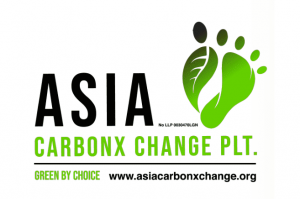

Every day, the power of renewable energy touches our lives in various forms: whether it's the soft glow from rooftop solar panels, the vast landscapes of ground-mounted solar farms, the gentle rumble of hydro dams, or the innovative prowess demonstrated by the sustainable utilization of palm waste in biomass combustion and the anaerobic digestion of palm mill effluent for biogas generation. These technologies not only help us harness energy in Eco-friendly ways but also prevent harmful GHG emissions from affecting our planet.
Every day, the power of renewable energy touches our lives in various forms: whether it's the soft glow from rooftop solar panels, the vast landscapes of ground-mounted solar farms, the gentle rumble of hydro dams, or the innovative prowess demonstrated by the sustainable utilization of palm waste in biomass combustion and the anaerobic digestion of palm mill effluent for biogas generation. These technologies not only help us harness energy in Eco-friendly ways but also prevent harmful GHG emissions from affecting our planet.
How RECs are Purchased and Function to account for Green Energy

How Renewable Energy Certificates are Created ?
RECs play a dual role. Primarily, they transfer the ownership of green attributes from renewable energy sources, allowing consumers to trace and validate their clean energy consumption. In addition, by purchasing RECs, consumers and corporations support and empower renewable projects, channelling essential capital towards their expansion and growth.

With International Standards


Our Commitment
At Asia Carbonx Change, we’re not just observers of the renewable revolution we’re active participants. We don’t merely ponder what the Renewable Industry can offer us. Instead, we’re constantly asking: “How can we best support and amplify the positive impact of the renewable industry?” Our dedication today, in promoting sustainable practices, paves the way for a more vibrant, green, and harmonious tomorrow for everyone.
Begin Your Sustainable Journey With Us Today
For Renewable Energy Generators
If you’re looking to monetize your renewable generation through RECs, let Asia Carbonx Change be your trusted partner. We’re here to guide and assist you every step of the way.
For Conscious Consumers
Offset your scope 2 consumption values by purchasing RECs. Not only does this affirm your commitment to sustainability, but it also makes a tangible difference in promoting clean energy.
Frequently asked questions
In Malaysia, if you are an owner of a solar plant or solar rooftop asset, you will be able to sell RECs as long as you are not under the LSS scheme. Other schemes like NEM, SELCO & FiT are also allowed to sell RECs. If you are uncertain, talk to us and we will help in verifying your solar asset’s eligibility.
Renewable Energy Certificates (RECs) represent a crucial aspect of your renewable energy facility. By selling your RECs, you not only foster investment in your operation but also secure a steady stream of passive income for your enterprise. Asia Carbonx Change ensures a seamless process for you to monetize your RECs.
RE100 is a global initiative in which companies commit to sourcing 100% of their electricity consumption from renewable sources.
RECs play a crucial role as they are considered procured renewable energy and can contribute towards these targets, subject to specific RE100 guidelines.
- Country: Consider the regulations and standards regarding REC market boundaries in the countries where you operate.
- Price: Take into account the pricing of RECs, which generally varies based on country, vintage and technology.
- Vintage: Check the vintage of RECs, which refers to the year they were produced. Different jurisdictions have specific rules on acceptable vintage dates.
- Technology: Consider the different technologies used to generate RECs, such as solar, wind, hydropower, biomass and biogas. Some buyers may have preferences for certain technologies based on marketing and brand value.
By considering these factors, you can make informed decisions that align with your operational and sustainability needs.
Company
Newsletter
Get in your inbox the latest News and Offers from Asia Carbonx Change
admin@asiacarbonxchange.org
No.63A-2 (First Floor), Jalan Anggun City 2,
Pusat Komersial Anggun City, Taman Anggun, Rawang, Selangor, 48000, MY
Copyright © Asia Carbonx Change Plt . All Rights Reserved
Company
Mailing List
Join us to to receive updates from Asia Carbonx Change.
No.63A-2 (First Floor), Jalan Anggun City 2,
Pusat Komersial Anggun City, Taman Anggun, Rawang, Selangor, 48000, MY
Copyright © Asia Carbonx Change Plt . All Rights Reserved



